Backyard Parties | 2000s: Post-Backyard

This is part of a series on backyard parties. Read More:
A Brief History of DJ Culture in Southern California
1970s: Temporary Discothèque
1980s: East L.A.'s DJ Culture
1990s: Party out of Bounds
Text by Gerard Meraz
Los Angeles at the turn of the century became the new music capital of the world, with DJs at the center of activity. DJs from all over the world moved to Los Angeles to work in the film industry making beats and selecting music for soundtracks.
Rock stars like Tommy Lee and Perry Ferrell, and celebrities like Danny Masterson and Lindsay Lohan put down their guitars and scripts and began to DJ. The Southern California weather allows for outdoor parties practically all year long and space is never a problem when you are surrounded by the desert, and Las Vegas, San Francisco, and San Diego are just a half hour flight away.
Today, DJs and promoters are expected to provide bigger and thus more expensive events, which make many promoters limit their risk of being busted by police at an illegal location. Simply put, most parties outgrew backyards as the basis for a good party grew in price, notoriety and complexity. Yet, all this would not have been possible without the early foundation of DJ-based entertainment established in the Eastside of Los Angeles by Chicano youth.
Today, the backyard party scene is still alive and well with high school youths who are not welcome into clubs or venues due to their age and high cover prices. Today's backyard parties reflect the niches with which youth label themselves as hip hop heads, rockers, punks, Goths, socials, casuals, paisas, and others.
There is very little crossover between the groups as they are separated by color, class, language and level of assimilation. Large scale raves are open to all ages, and all tribes and those require at least 2,000 attendees to break even with a minimum price of $25 a ticket, VIP / 21 & over tickets can go up to $75, but include an open bar with three choices of drink.
The backyard party today still serves its original purpose as it did in its inception: to prepare youth for the journey into larger venues and clubs. Technology has moved beyond vinyl records and into MP3 mixing programs like Serato, that make DJs carry $2000 computers to their gigs instead of $2000 worth of records in a bag. Music is easily made at home on a computer and sent around the world as an MP3. Music producers know that a song is like a business card: disposable.
The money is in getting hired to perform based on the DJs' tracks in the scene and their reputation as a performer/DJ. Flyers are seldom printed since electronic flyers distributed via social networking sites like My Space and FaceBook are easier and cheaper to make. This new viral form of marketing has some promoters and DJs simply text messaging the location of their event, and trust that the crowd will be there.
Droid Behavior, along with other crews such as Heading Home, Soul City, and Freedom Events, based their organizational structure on previous examples of DIY collectives of DJs, promoters, artists. Their influences were more than their neighborhood DJ; the new generation grew up in a digital age where You-Tube, cell phones, podcasts and blogs feed them images and sounds allowing them to take their events to the next level. Today with an MP3 player in hand, everyone is a DJ.
'00s Mix: Acid Circus of Droid Behavior are the new model of DJ. That includes producing and remixing music, and having a record label. Droid goes further in that they fund and host their own events and have a magazine that helps promote their slice of the huge underground music scene. While their success today is based on the quality of their events it also rests on the foundation laid by the Eastside DJ culture.
Additional Videos
'00s Flyers

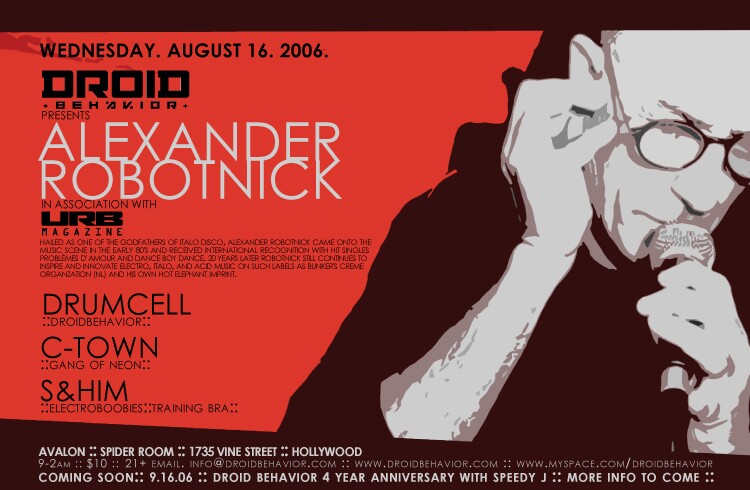

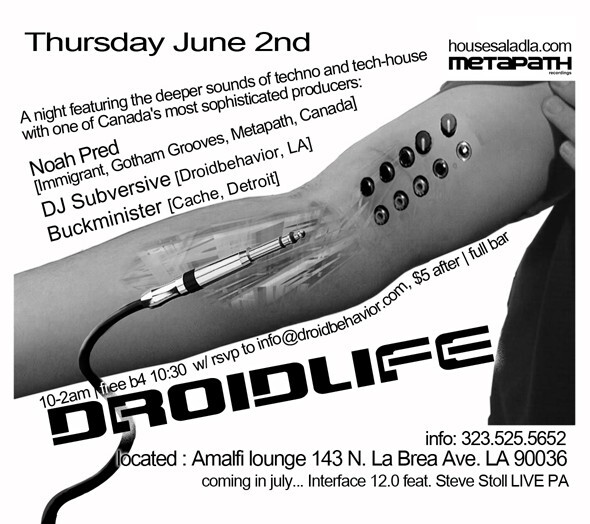
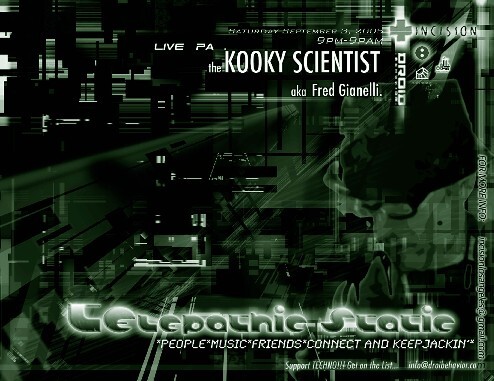
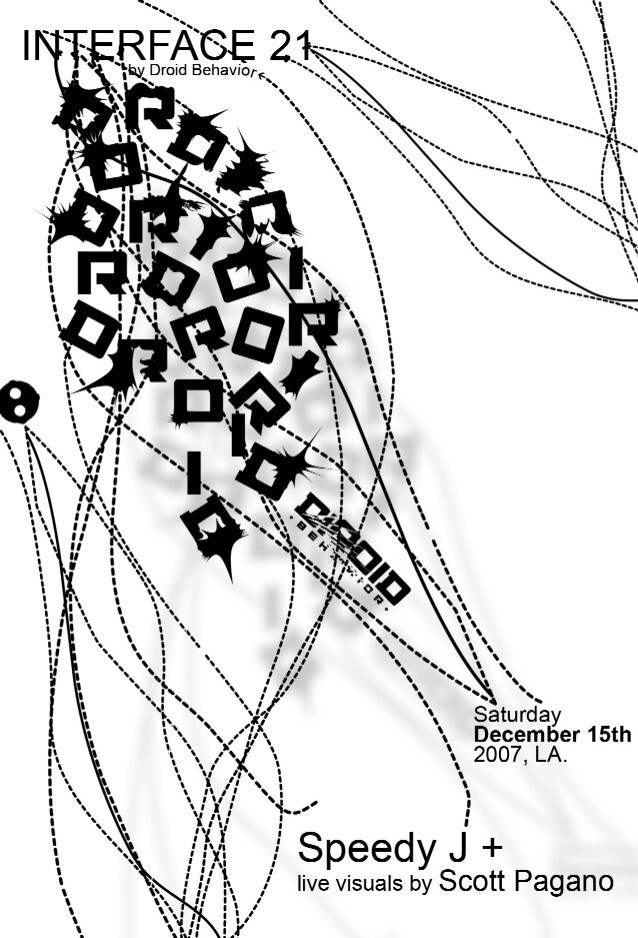

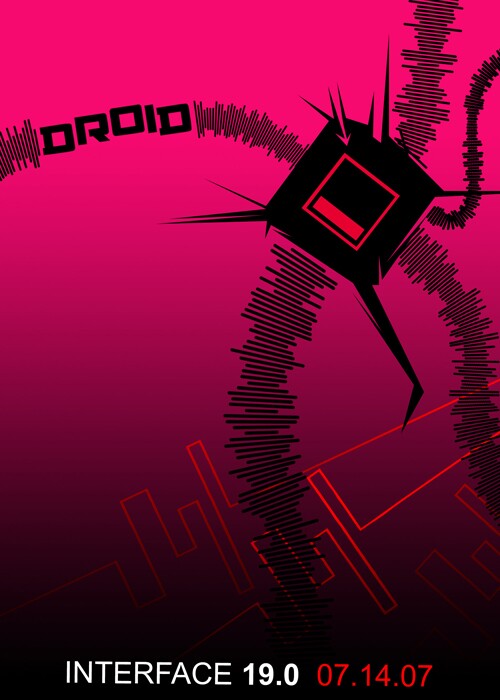
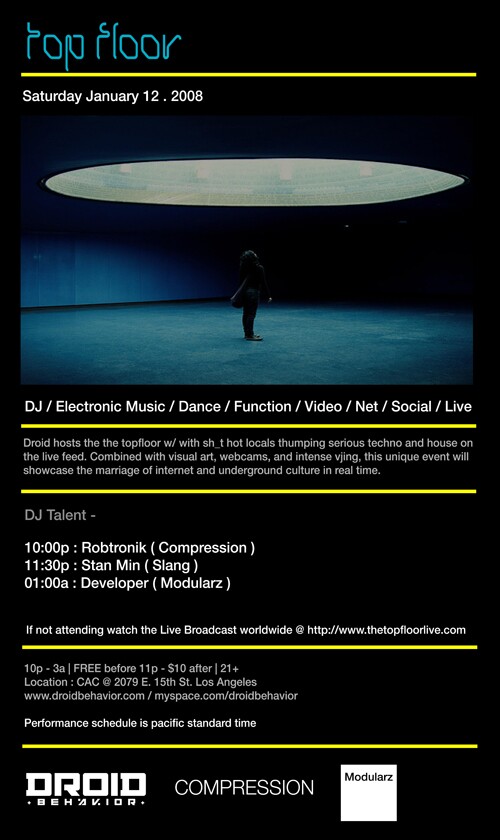
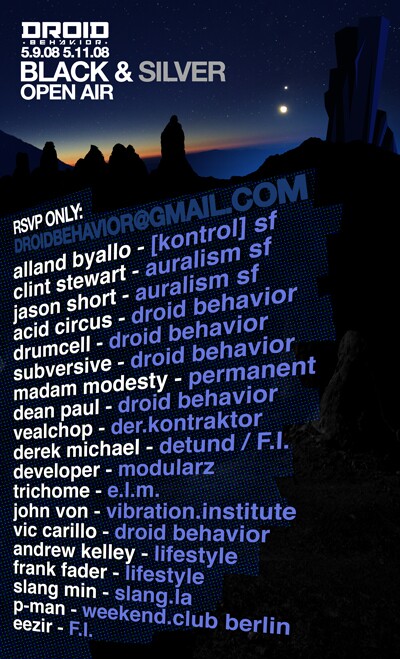
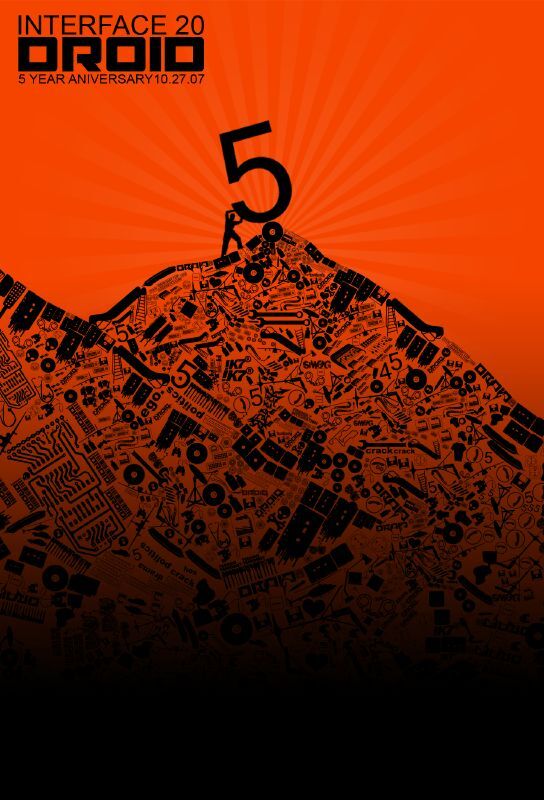
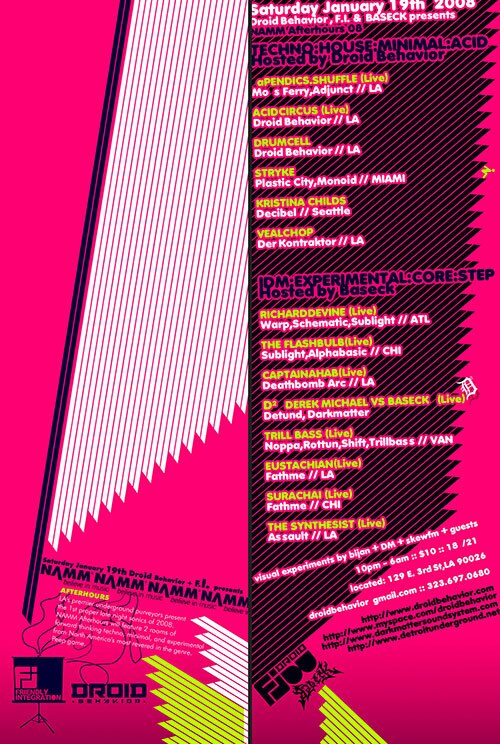
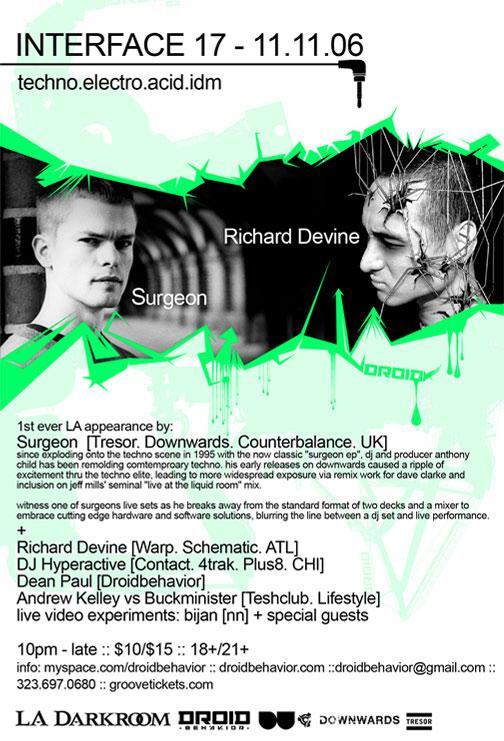
'00s Scene Gallery
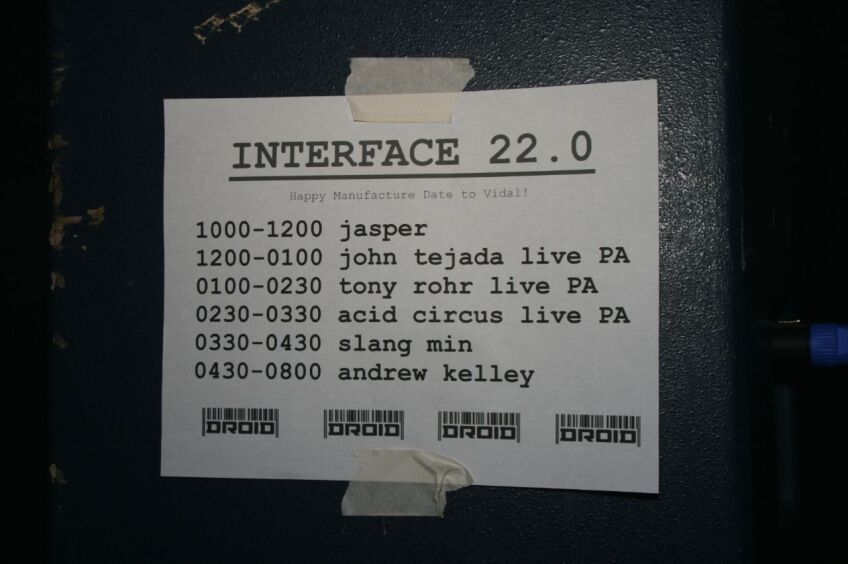

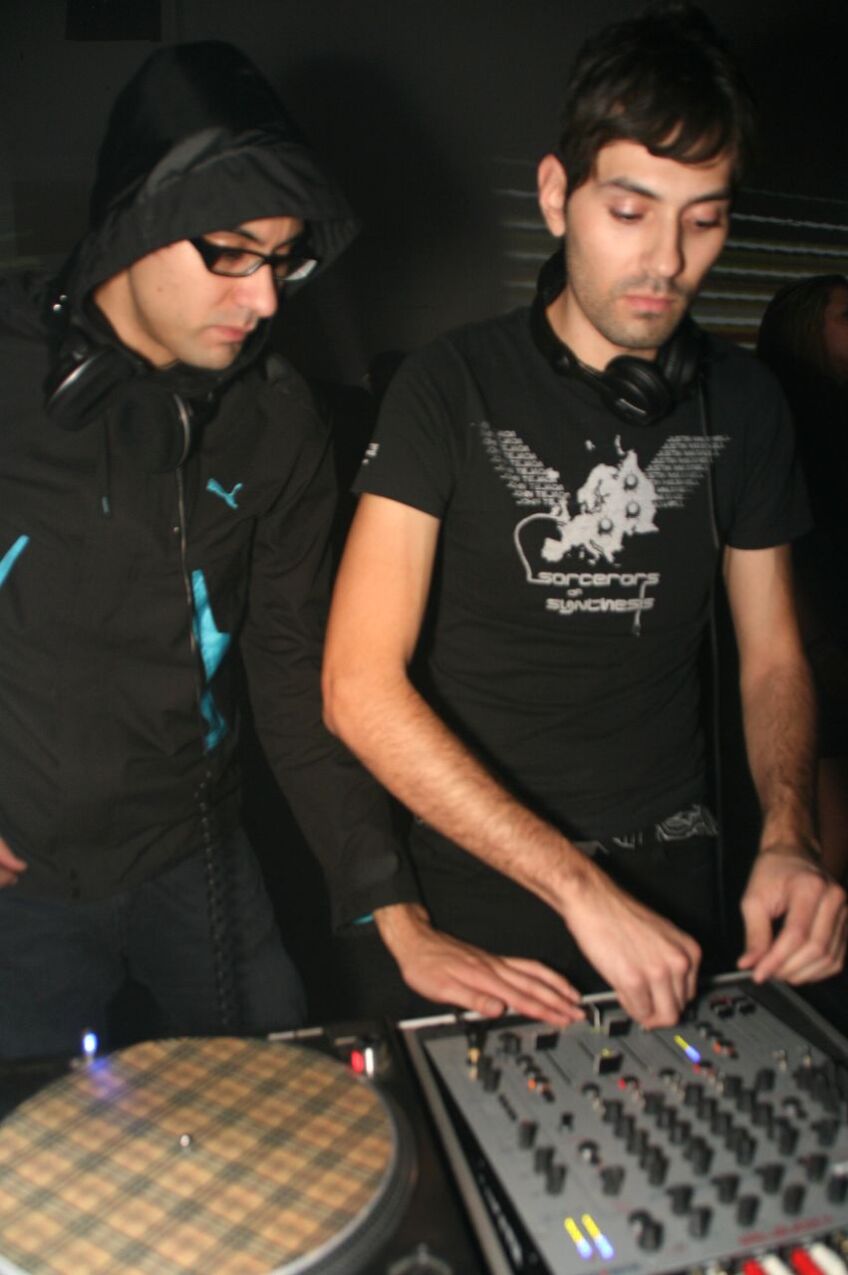
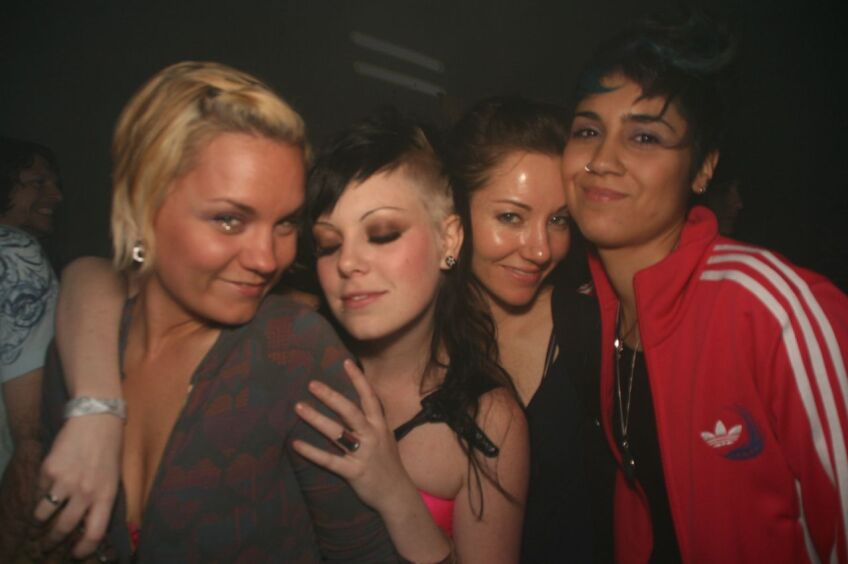
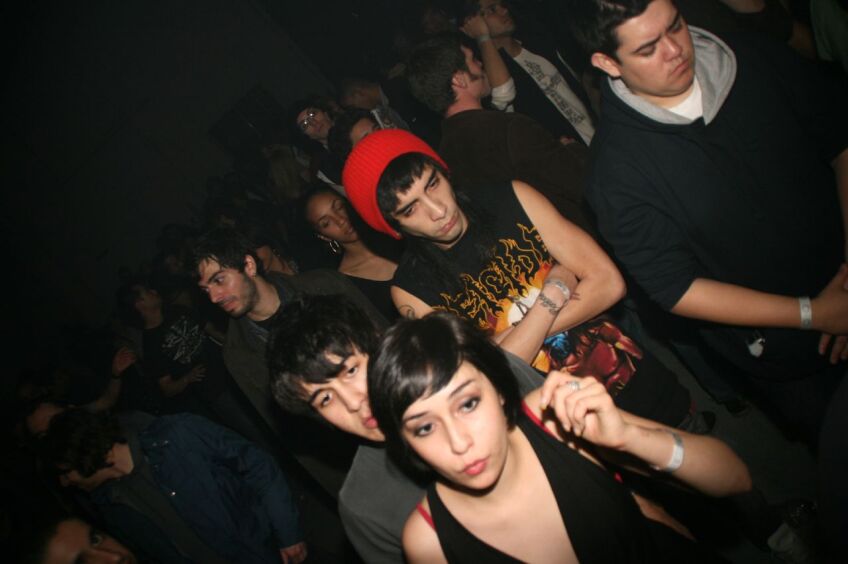


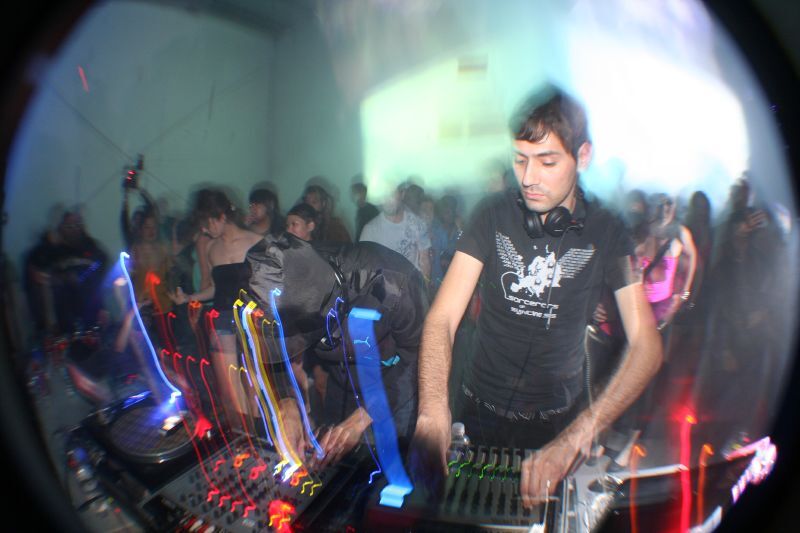

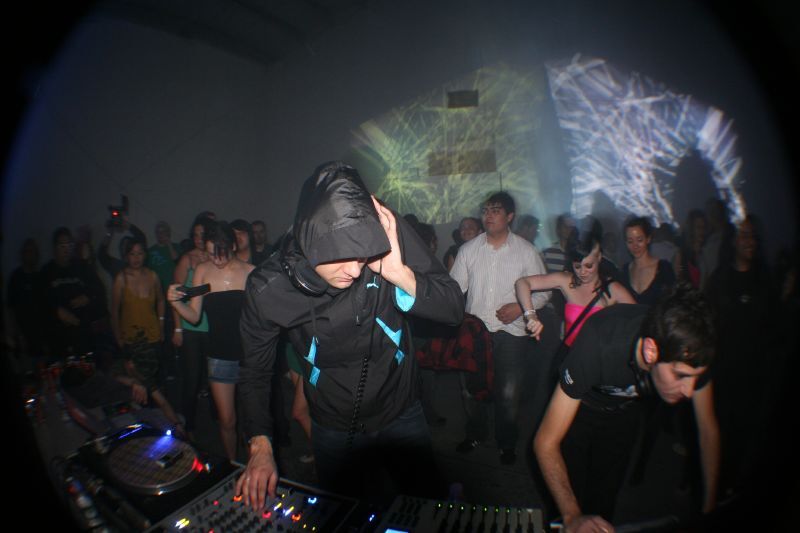


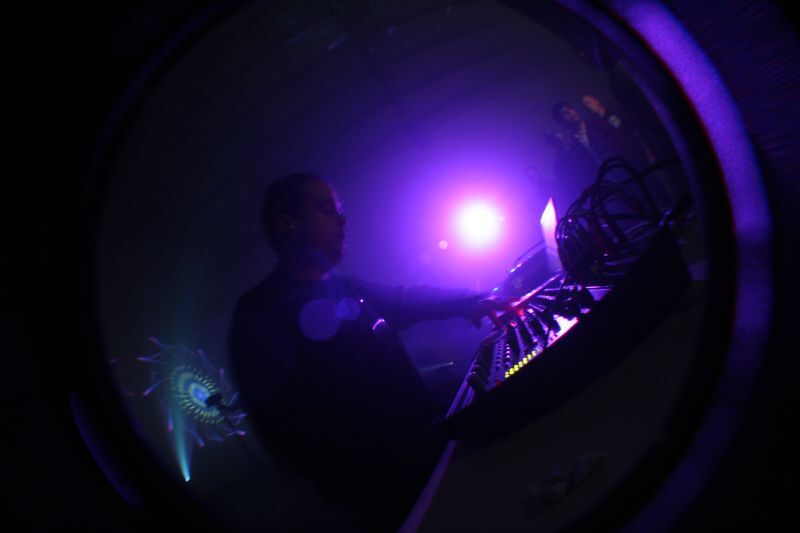
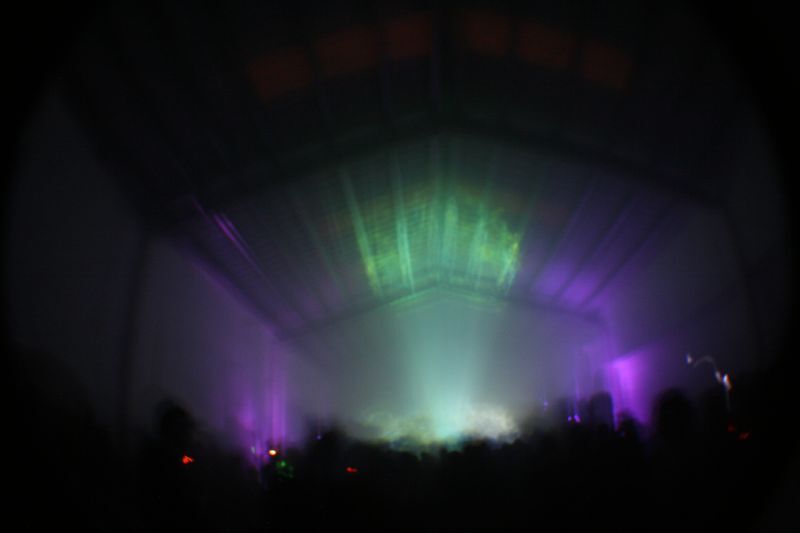

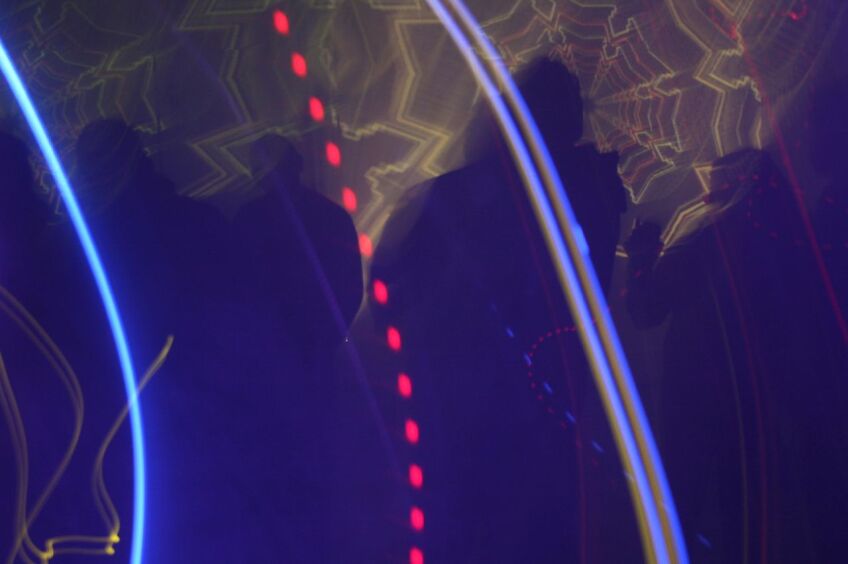
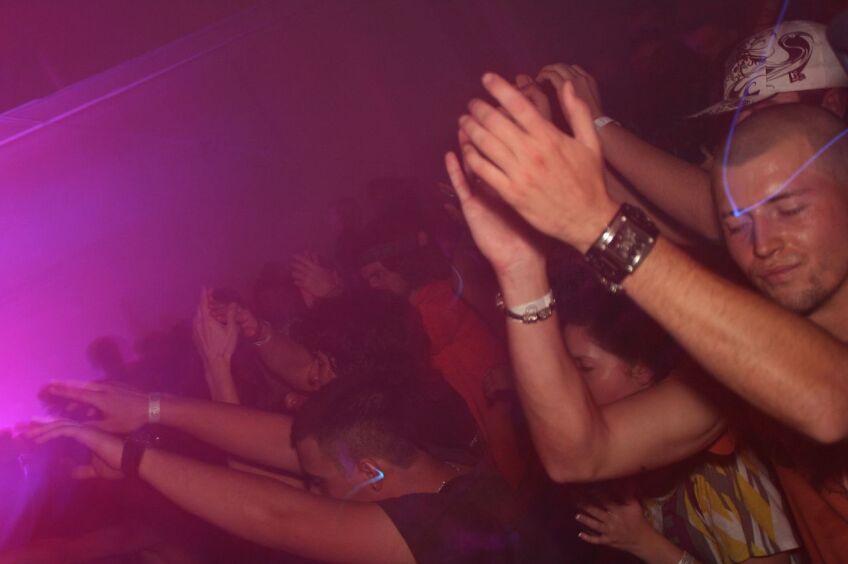

Gerard Meraz is the author of An Oral History of DJ Culture From East Los Angeles.